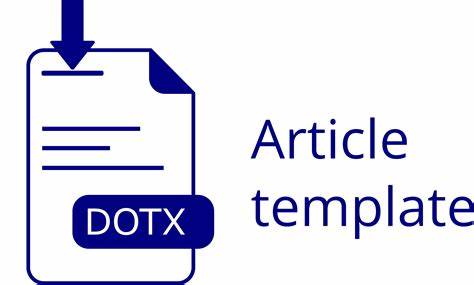Komunikasi Politik Digital di Indonesia
DOI:
https://doi.org/10.18592/al-hiwar.v10i2.7548Keywords:
Political Communication, digital media, digital societyAbstract
The habits of the Indonesian people in seeking the information at this time have experienced a shift from what was previously considered television and print media as a means of actual information, turning to digital media as the main media for seeking information. This is in line with the demands of the industrial revolution 4.0 which demands an all-digital society, the great attention of the Indonesian people to the internet is an opportunity for political actors to turn to digital media as a means of political communication. Through research using descriptive literature study methods, researchers try to observe through online news, scientific magazines, television news, and digital literacy related to political communication built by political actors in Indonesia today. It was found that the results of political communication built through digital media were more effective because political messages were more easily conveyed thanks to the great attention of the Indonesian people to the internet. In addition, digital media can save time and cost in delivering political messages. This digital political communication, apart from personal branding, can also be used to resolve conflicts between the government and societyReferences
Arif, M. (2022, October 20). Survei Profil Internet Indonesia 2022. APJII. https://apjii.or.id/survei
chaerul umam. (2022, October 17). Anies-AHY Semeja dengan SBY-JK dan Surya Paloh, Jubir Demokrat: Semoga Kebersamaan Ini Makin Intens . Tribunnews. https://www.tribunnews.com/mata-lokal-memilih/2022/10/17/anies-ahy-semeja-dengan-sby-jk-dan-surya-paloh-jubir-demokrat-semoga-kebersamaan-ini-makin-intens
dennysiregar. (2022, October 16). status. Twitter. https://twitter.com/Dennysiregar7/status/1581629588236808192?t=nuvYaRY5TS7OwRunWxZZQg&s=19
Genc, Merve, & Oksuz, B. (2015). A Fact or An Illution: Effective Social Media Usage of Female Enterpreneurs. . Elsevier Journal. Procedia Social and Behavioral Sciences, 195, 195–300.
Kompas Tv. (2022, October 10). menangkal Hoaks di Pemilu 2024.
Lim, M. (2012). Clicks, Cabs, and Coffee Houses: Social Media and Oppositional Movements in Egypt, 2004-2011. Journal of Communication, 62(2), 231–248. https://doi.org/10.1111/j.1460-2466.2012.01628.x
Mujab, S., & Irfansyah, A. (2020). Komunikasi Politik Identitas K.H. Ma’ruf Amin sebagai Strategi Depolarisasi Agama pada Kontestasi Demokrasi Pilpres 2019. Warta ISKI, 3(01), 54–66. https://doi.org/10.25008/wartaiski.v3i01.46
Novita, D., Suryani, E., Morlian, A., Widyastuti, M., & Fadilah. (2020). Evaluasi Komunikasi Publik Komisi Pemilihan Umum Melalui Media Sosial pada Pemilihan Umum 2019. Jurnal Administrasi Negara. https://e-jurnal.lppmunsera.org/index.php/Sawala/article/view/2824/1526
Pertiwi, W. K. (2018, March 1). Riset ungkap pola pemakaian medsos orang Indonesia. Https://Tekno.Kompas.Com/Read/2018/03/01/10340027/Riset-Ungkap-Pola-Pemakaian-Medsos- Orang-Indonesia.
Rahman, S. (2021). Personal Branding Ganjar Pranowo untuk Membangun Komunikasi Politik di Media Sosial Instagram. Jurnal Interaksi : Jurnal Ilmu Komunikasi, 5(1). https://doi.org/10.30596/interaksi.v5i1.5584
Shahreza, M. (2018). Proses dan Elemen-Elemen Komunikasi Politik.
sidik, farih maulana. (2022). giring nyanyi laskar pelangi dekat jis sound system terbaik suara rakyat. News.Detik.Com. https://news.detik.com/berita/d-5910274/giring-nyanyi-laskar-pelangi-dekat-jis-sound-system-terbaik-suara-rakyat
Wibisono, I., & Nusantara, A. B. (2022). Pola Komunikasi Politik Ganjar Pranowo Melalui Akun Youtube @Ganjarpranowo Dalam Menyikapi Isu Wadas. Intelektiva, 3.
Witawan, I., & Mudana, I. W. (2022). Demokrasi Digital Di Masa Pandemi Covid-19 (Studi Kasus Pilkada Tahun 2020 Di Kabupaten Jembrana). Journal.Unpad.Ac.Id. http://journal.unpad.ac.id/sosioglobal/article/view/36839
Zainal, F., & Megasari, N. F. (2019). Mempolitisasi Ruang Virtual: Posisi Warga-Net dalam Praktik Demokrasi Digital di Indonesia. In Jurnal Ilmiah Manajemen Publik dan Kebijakan Sosial (Vol. 306, Issue 1).
Downloads
Published
How to Cite
Issue
Section
License
Authors who publish with this journal agree to the following terms:
- Authors retain copyright and grant the journal right of first publication with the work simultaneously licensed under a Creative Commons Attribution License that allows others to share the work with an acknowledgement of the work's authorship and initial publication in this journal.
- Authors are able to enter into separate, additional contractual arrangements for the non-exclusive distribution of the journal's published version of the work (e.g., post it to an institutional repository or publish it in a book), with an acknowledgement of its initial publication in this journal.
- Authors are permitted and encouraged to post their work online (e.g., in institutional repositories or on their website) prior to and during the submission process, as it can lead to productive exchanges, as well as earlier and greater citation of published work.





